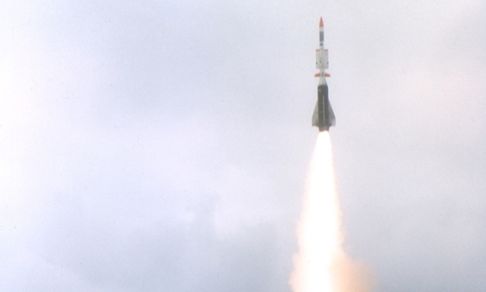Russia should not seek new weapons to counter nonexistent threats from the West, and would be better off spending the money on social and economic development, NATO’s secretary general said on Tuesday.
“Unfortunately, I have seen public pronouncements that Russia might consider spending billions of rubles on a new offensive system to target the West,” Secretary General Anders Fogh Rasmussen said, dismissing Russian threats of new weapons to challenge NATO’s European missile defense plans.
“Let me put it bluntly: this type of statement is unnecessary. Because Russia is not threatened from the West,” he said at the Kuznetsov Naval Academy in St. Petersburg. “This type of investment is a waste of money. Because the money is better spent on economic development, on modernization, and on job creation.”
The statement came a day after a NATO-Russia Council meeting in Russia’s Black Sea resort city of Sochi, which focused on the creation of the European missile defense system and opportunities for cooperation between Russia and the alliance on the issue.
Russian Foreign Minister Sergei Lavrov admitted after the talks that NATO would not agree on Russia’s proposal for a so-called sectoral missile defense system in Europe. The alliance insists on establishing two independent systems that exchange information.
Russia and NATO agreed to cooperate on the European missile defense system at the Lisbon Summit in November 2010. Under a proposal put forward by President Dmitry Medvedev, Russia would be responsible for shooting down missiles aimed at NATO members but passing through Russia’s airspace or sector, with NATO members committing to protect Russia in a similar fashion.
NATO has also refused to provide legally binding guarantees that its missiles would not be directed against Russia, which Moscow says is the only way to prevent a new arms race.
Russia has also threatened to withdraw from the New START treaty on cutting U.S. and Russian nuclear arsenals in response to NATO’s stance, as well as to create a new air and space defense system and enhance its offensive potential at western borders to avert a possible missile threat.
Rasmussen has pledged to continue dialogue with Russia on the issue and search for common grounds in order to “enhance transparency” and “create greater trust and confidence.”










